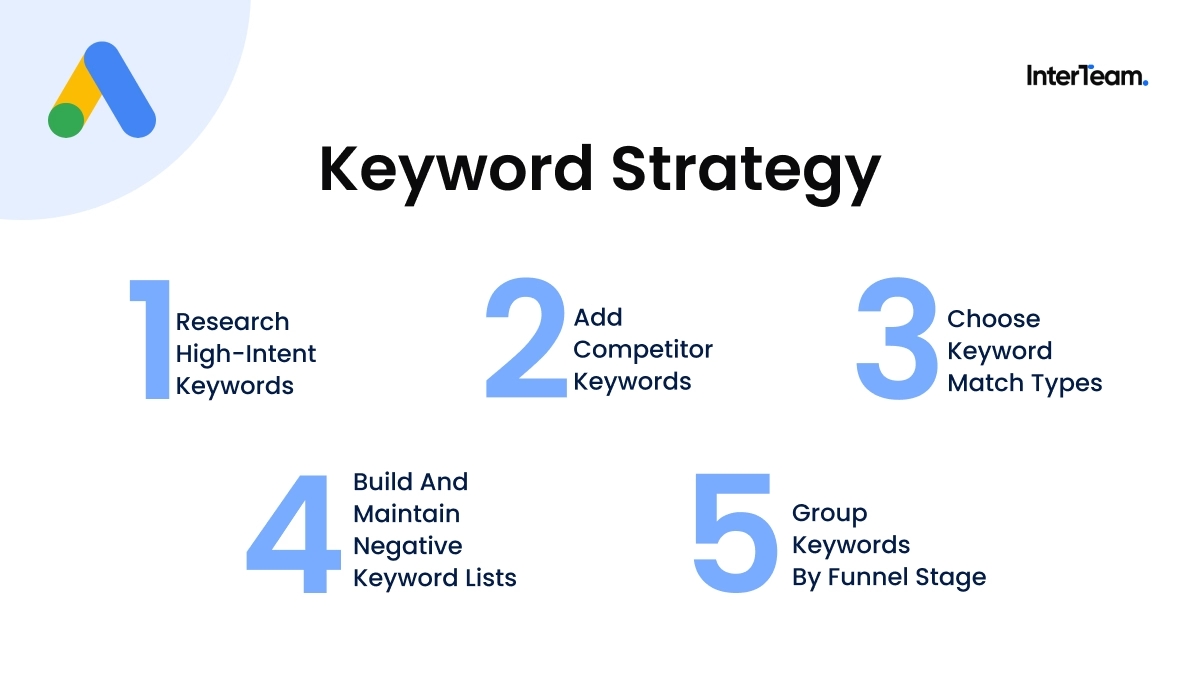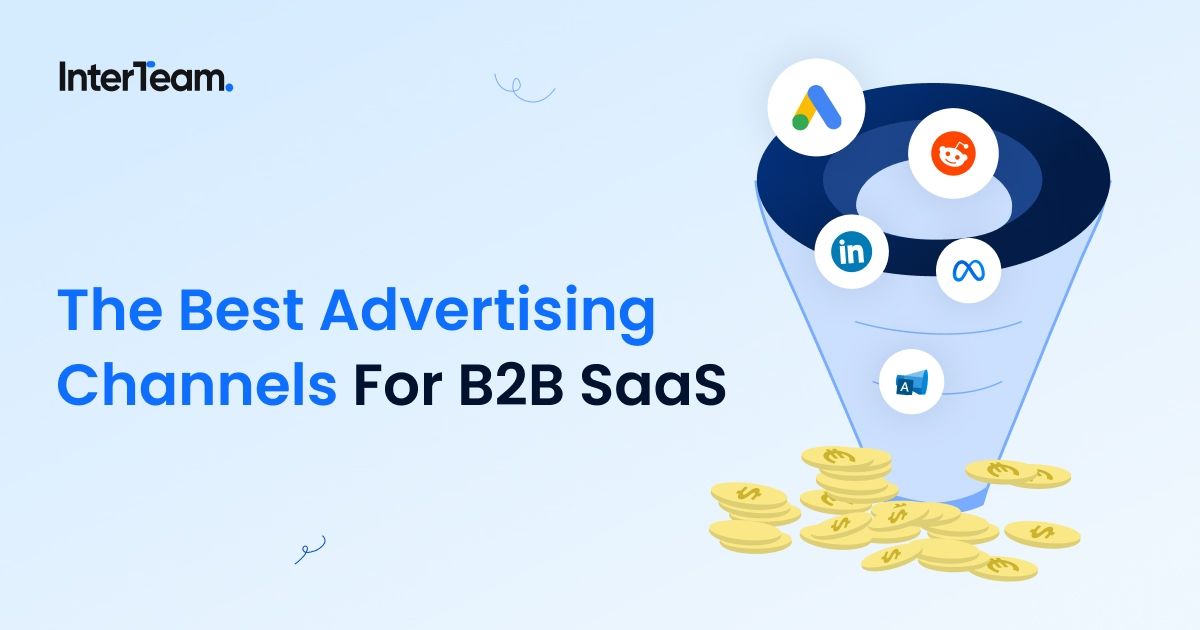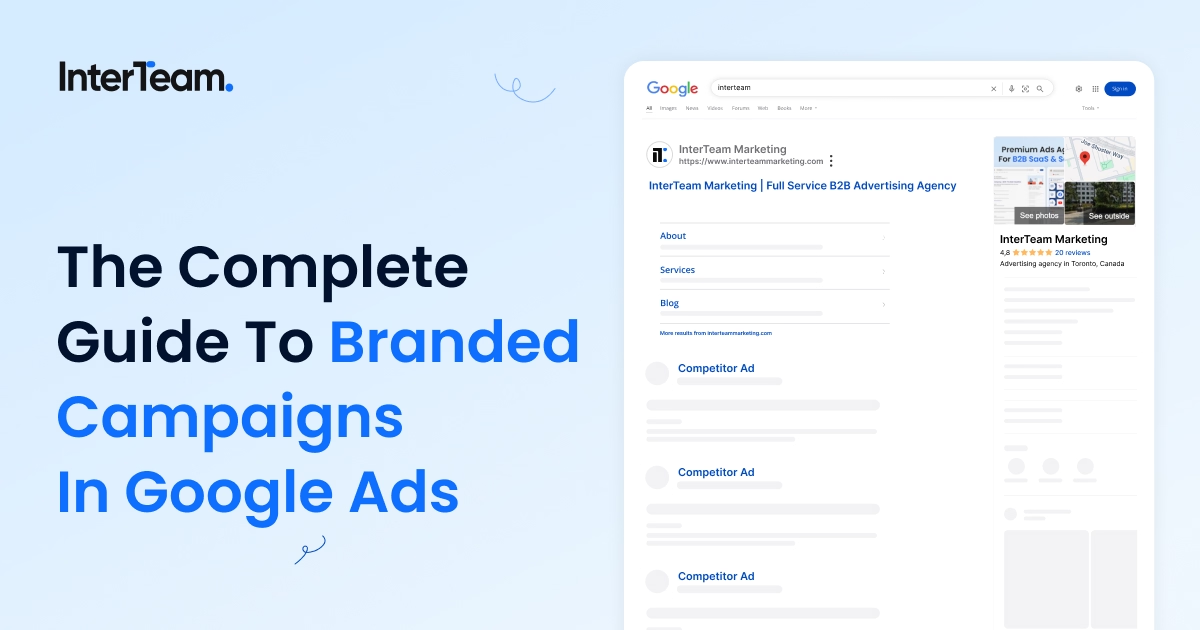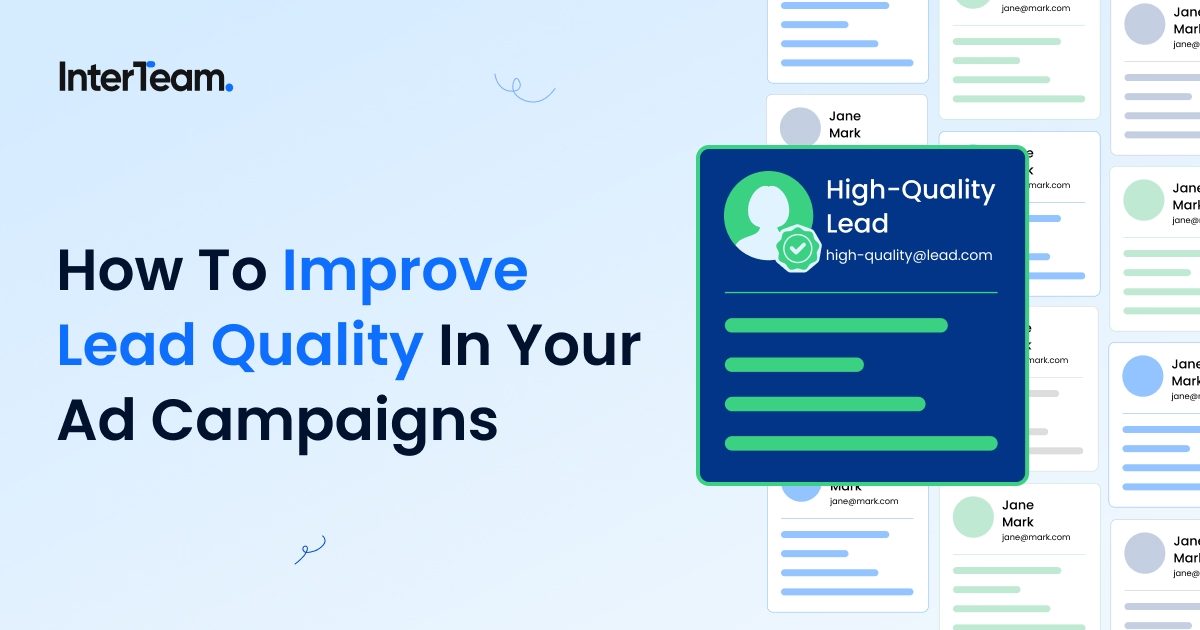4 Reasons For CPC Inflation & How To Respond
Overview
Is there a word that generates more anxiety than inflation?
It's a term that refers to rising prices and diminishing quality of life. And it seems that even our precious cost per click isn't safe from it.
From 2022 to 2023, the average CPC increased by approximately 5%, and the cost per lead (CPL) rose by about 20%. At InterTeam, we've noticed the same trend. As you can see in the graph below, the CPCs in our Google Ads accounts have steadily increased over the past two years.

Rising CPCs mean that getting solid ROIs is becoming increasingly challenging because the cost per lead (CPL) increases as well, and unfortunately, this trend doesn't appear to be stopping anytime soon.
But how is it that something intangible, like keywords, is increasing in price? What does it mean for advertisers? Is it possible to mitigate the rising ad costs or CPC inflation?
While CPC inflation does paint a discouraging picture, it doesn't mean your ad campaigns have to come to an end.
This blog covers everything you need to know about CPC inflation, from why it's happening to how you can minimize the impact.
What Is CPC Inflation?
Put simply, CPC inflation is the gradual and consistent increase in average cost-per-click for ads within a specific industry, niche, or set of keywords over time. Rising costs-per-click also mean higher advertising costs just to maintain your average position or impression share.
4 Reasons Why Cost-Per-Click Inflation Occurs
Understanding CPC inflation starts with the source.
The cause(s) may be unclear and multifaceted, but one thing is certain: higher CPCs can mean harder times for advertisers and small to medium-sized businesses. CPC inflation essentially constrains your marketing budget, making it challenging to achieve a return on investment.
However, understanding the major factors that go into CPC inflation can help us develop a proper response to it.
Here are some of the main causes of CPC inflation:
Competition
At this point, nearly every business is running ads. This is especially true for Google Ads, the most widely used platform, which means more people are competing for the same keywords. So it's natural that prices reflect that.
What's more, keyword competition can increase depending on geographical location. Running paid ads for specific, more populated regions usually results in higher CPCs due to the sheer volume of businesses vying for attention.
Cost-per-click can also vary widely depending on the industry you're working in and the specific keywords that you're targeting.
Keywords related to industries like legal services, finance, and healthcare are typically more competitive and often see higher CPCs. For instance, keywords such as “personal injury lawyer” or “mortgage rates” can easily have a CPC over $100. Industry trends could also lead to CPC inflation.

Advertising has always been competitive. A huge part of digital marketing and advertising is assessing and outmaneuvering your competitors. Check out our blog, “How to Target Competitors' Audience on Google Ads,” to build a winning strategy!
Changes in Search Volume
CPCs can literally change with the season due to higher seasonal search volumes for certain terms. During certain periods of the year, some keywords increase in demand and, therefore, increase in price. For instance, holidays or global events (like a pandemic) can increase CPC prices in many industries at once.
Changes in the Algorithm
Another factor that constantly creates price fluctuations in the SEO world is Google's evolving search algorithm. Google is always tweaking things to optimize its platform and improve user engagement. Frequent updates, policy changes, and format changes can also lead to higher CPCs.
Seasonal & Societal Trends
Last, seasonal CPC trends can also result in raised prices. For instance, CPCs for B2B businesses tend to spike in the summer, when searches are down and professionals are on vacation.
Political and economic trends can also impact CPC inflation. For instance, we've spoken to many digital advertising agencies in both organic and paid marketing disciplines and found that June and July 2024 were 2 of the worst months for all advertisers and marketers due to uncertainty about the US election and a poor economy.
4 Strategies For Responding To Higher CPCs in Google Ads
We can't control the cost per click, but advertisers can certainly adapt their strategy to mitigate these higher prices. With the right approach, CPC inflation can actually encourage you to refine your Google Ads strategy.
Improve Campaign and Ad Quality
Focus on improving campaign and the quality of your ad copy. This can be an opportunity to review your Google Ads campaign budget and refine—and if need be—shift business objectives.
With more specific goals in place, it's a matter of fine-tuning content so that it's laser-focused on boosting specific metrics.
Get Serious With Your Keyword Research
Conducting keyword research is a crucial aspect of advertising. Start by identifying high-intent keywords that align with your business objectives, and be strategic about your keyword match types to control who sees your ads and how broad or narrow your targeting is.

Focusing on long-tail keywords can often provide a higher conversion rate at a lower CPC, as these terms are usually more specific and less competitive.
Optimize Your Landing Pages
Landing pages are an essential part of Google Ad campaigns, and it's highly important that keywords and messaging closely align with what you have on your ads. What's more, optimizing your landing page so that it's high-quality, relevant content will improve your keyword quality score, which can lower your CPC.
Diversify Advertising Channels
Another adaptation is to diversify advertising channels. While it may seem like it, not everyone uses Google's search engine. Running ads on other platforms like Bing or LinkedIn will increase your outreach while potentially offering cheaper CPCs.
Rising Above The Challenge Of CPC Inflation
Google CPC inflation is a bit of a drag, but it's not impossible to navigate and even thrive in this environment. When it comes to Google Ads, attention to detail is SUPER important. By making your campaigns laser-focused, refining your keyword search and landing pages, and using other ad platforms, maximizing ROIs (even with CPC inflation) is totally achievable.
InterTeam is a premium PPC agency that works with B2B, B2C, and SaaS companies to generate high-quality leads through paid search advertising. If you're looking for someone to audit your campaign or help launch and execute one, book an appointment today!
FAQ
Template question
Template text answer








